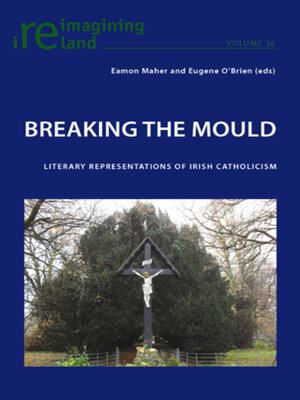Breaking the Mould
ebook ∣ Literary Representations of Irish Catholicism · Reimagining Ireland
By Eamon Maher

Sign up to save your library
With an OverDrive account, you can save your favorite libraries for at-a-glance information about availability. Find out more about OverDrive accounts.
Find this title in Libby, the library reading app by OverDrive.



Search for a digital library with this title
Title found at these libraries:
| Library Name | Distance |
|---|---|
| Loading... |
Catholicism has played a central role in Irish society for centuries. It is sometimes perceived in a negative light, being associated with repression, antiquated morality and a warped view of sexuality. However, there are also the positive aspects that Catholicism brought to bear on Irish culture, such as the beauty of its rituals, education and health care, or concern for the poor and the underprivileged. Whatever their experience of Catholicism, writers of a certain generation could not escape its impact on their lives, an impact which is pervasive in the literature they produced.
This study, containing twelve chapters written by a range of distinguished literary experts and emerging scholars, explores in a systematic manner the cross-fertilisation between Catholicism and Irish/Irish-American literature written in English. The figures addressed in the book include James Joyce, Maud Gonne, Constance Markievicz, Kate O'Brien, Edwin O'Connor, Brian Moore, John McGahern, Seamus Heaney, Paul Durcan, Vincent Carroll and Brian Friel. This book will serve to underline the complex relationship between creative writers and the once all-powerful religious Establishment.
This study, containing twelve chapters written by a range of distinguished literary experts and emerging scholars, explores in a systematic manner the cross-fertilisation between Catholicism and Irish/Irish-American literature written in English. The figures addressed in the book include James Joyce, Maud Gonne, Constance Markievicz, Kate O'Brien, Edwin O'Connor, Brian Moore, John McGahern, Seamus Heaney, Paul Durcan, Vincent Carroll and Brian Friel. This book will serve to underline the complex relationship between creative writers and the once all-powerful religious Establishment.







